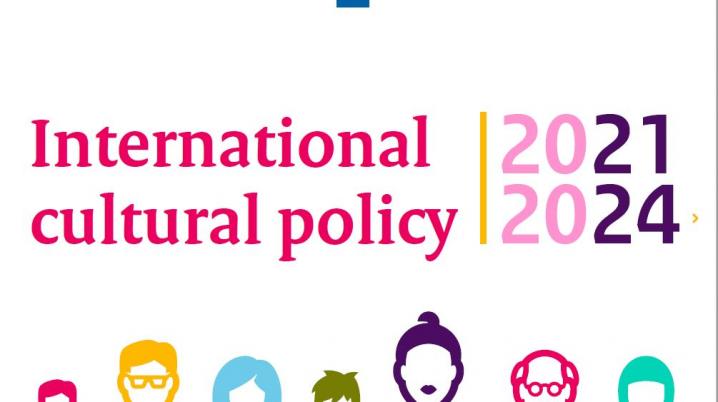
English version of Dutch International cultural policy 2021-2024
The Minister of Foreign Affairs (BZ), the Minister for Foreign Trade and Development Cooperation (BHOS) and the Minister of Education, Culture and Science (OCW) describe the foundations, ambitions and objectives for the international cultural policy 2021-2024.
As it says in the publication: "Cultural collaboration strengthens our ties with other countries and boosts our image. Dutch artists and cultural organisations reach new, different audiences across borders, access a wider market, and gain inspiration from foreign counterparts. We value this exchange and inspiration and seek to continue to support it, as a shared responsibility, in the 2021-2024 period."
The policy in short
Aims of international cultural policy
1 The Dutch cultural sector will occupy a strong position abroad through visibility, exchanges and long-term partnerships. This will:
• result in inspiration, increased knowledge, enrichment, a wider audience and market expansion;
• enhance the economic value of Dutch art and culture.
2 Dutch cultural expression will be used to support bilateral relationships with other countries. This will:
• strengthen the Netherlands’ position and reputation abroad;
• foster dialogue about standards and values;
• promote partnerships;
• contribute to exchanges and dialogue, even with countries with which the Netherlands may have a complex relationship.
3 We will harness the power of the cultural sector and creative industries in efforts to achieve the Sustainable Development Goals, particularly in connection with the BHOS agenda in focus regions. This will:
• enable the cultural and creative sectors to contribute to achieving the SDGs through international partnerships;
• offer opportunities for the excellence of the Dutch creative sector to contribute abroad to finding solutions to challenges currently faced by society;
• strengthen the Netherlands’ image as an innovative, creative and inclusive country, in line with the new NL Branding.
The policy framework prioritises Europe, the European Union, Heritage, Cultural cooperation and the SDGs.
The ICP is applicable worldwide but efforts will concentrate strategically on the following 23 countries:
- Within Europe: Belgium/Flanders, Germany, France, Hungary, Italy, Poland, Spain, UK
- Bordering Europe: Russia, Turkey, Egypt, Morocco
- Beyond Europe: Australia, Brazil, China, India, Indonesia, Japan, Sri Lanka, Suriname, USA, South Africa, South Korea.
For each country, further agreements about cooperation and implementation will be made with relevant parties.
Read the full publication here or download the PDF on the left.

